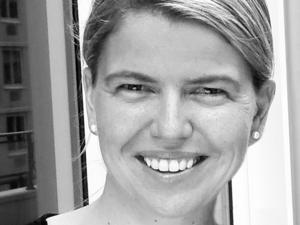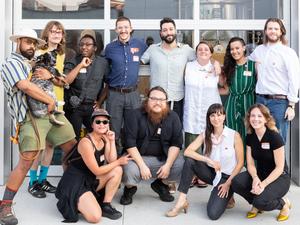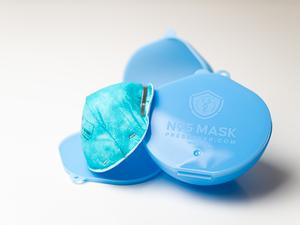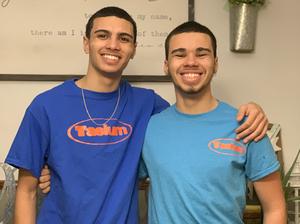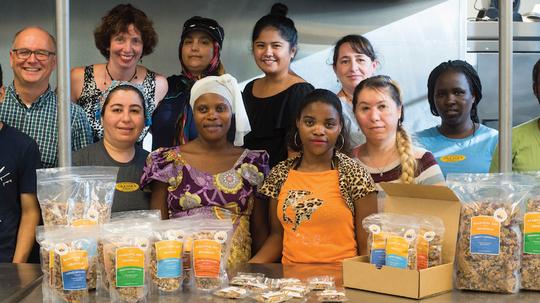
On many accounts, granola is considered a nutritious, lightweight and high-energy snack that has become a popular breakfast item, as well as a pick-me-up for hikers and campers.
But at the Providence-based nonprofit Beautiful Day, the crumbled, whole-grain based food has become a path to the labor market for many refugees that come to this country lacking the skills needed to obtain a job.
Keith Cooper, a former campus ministry veteran, founded Beautiful Day about 10 years ago as a granola business that employs refugees in order to give them hands-on experience and training they can use later on to gain permanent employment.
"People can do something about refugee resettlement; it doesn’t have to be this problem on the other side of the world that is too big to be a part of."
As the United States prepares to take in the least amount of refugees since the 1980s, Cooper is gearing up to double growth at Beautiful Day so the organization can expand its services by taking on more refugees or train refugees for longer periods of time.
“The refugee resettlement system in the United States is in a difficult place right now,” Cooper, who serves as Beautiful Day’s executive director, told Rhode Island Inno. “The system is under siege in different ways as arrivals slow and funding and supports are being pulled away, but we have a model to equip those with the greatest barriers to enter the workforce.”
The organization finds refugees through various agencies such as the Dorcas International Institute of Rhode Island. Cooper said typical candidates are those that have extremely high barriers to entry, whether its lacking cultural literacy or English speaking skills.
Cooper said he chose granola because its non-perishable, healthy and a food that requires a lot of work to make, but not a lot of finesse.
“I had never run a food production company, but we have been determined to become our state’s premier granola company,” he said, adding that the organization uses local distributors and suppliers when possible. “We try to use the highest quality ingredients we can to make granola people will really like.”
Beautiful Day provides 200 hours of work to refugees in various parts of the granola business, which gives them experience for when they apply to their next job. The placement also comes with a stipend and has opportunities for refugees to interact with others in the community when the company goes to public places like farmer markets to sell the granola.
Last year, the company took on 24 trainees. This year, there is less, but the participants are working with Beautiful Day for longer periods of time.
Cooper said most of the kitchen workers go onto entry level jobs such as working at a laundromat, in a warehouse, as a janitor or sometimes in food production.
“Most lack English language, but they can still learn pretty quickly how to look someone in the eyes during an interview,” he said, adding that all of the program participants, many of whom lived for years in refugee camps, are extremely eager to work. “The primary skill we teach is confidence … In a lot of work settings you may not need much English, but you absolutely have to be able to communicate when you do or you don’t understand something. That takes confidence."
According to Cooper, over 80 percent of participants who enter the program with a goal of finding work achieve their goal, mostly in entry level jobs. Some participants enter with other goals such as moving forward with their education, socialization or figuring out if they have the capability to even work in an entry level job.
The organization was initially called the Providence Granola Project, but about five years ago it became a nonprofit and switched its name to Beautiful Day, inspired by the famous U2 song.
Now, Cooper has his sights set on ramping up production to expand the organization to around $1 million in sales so it can be self-sustaining and expand services. Currently, he said revenue is split 30 percent sales and the rest from grants. He would like to flip it so eventually 65 to 70 percent of revenue is from sales.
Beautiful Day receives orders from all 50 states and is in farmers markets, some grocers such as the East Side Marketplace and companies like Goldman Sachs, who serve Beautiful Day granola bars at their office.
But Cooper sees huge scalability through online subscriptions and consumer sales. He is also looking to sell directly to universities and law offices, which will also help spread Beautiful Day’s mission because subscribers receive a postcard each month with a story about a new trainee.
Cooper hopes that by growing the organization, he can get more people to take action.
“People can do something about refugee resettlement; it doesn’t have to be this problem on the other side of the world that is too big to be a part of,” he said. “That’s why I want to be selling granola bars. You might think this problem is too big, but by making a small choice about what you eat for breakfast or for a snack, you can provide crucial on-the-job training for someone who otherwise can’t get a job."
